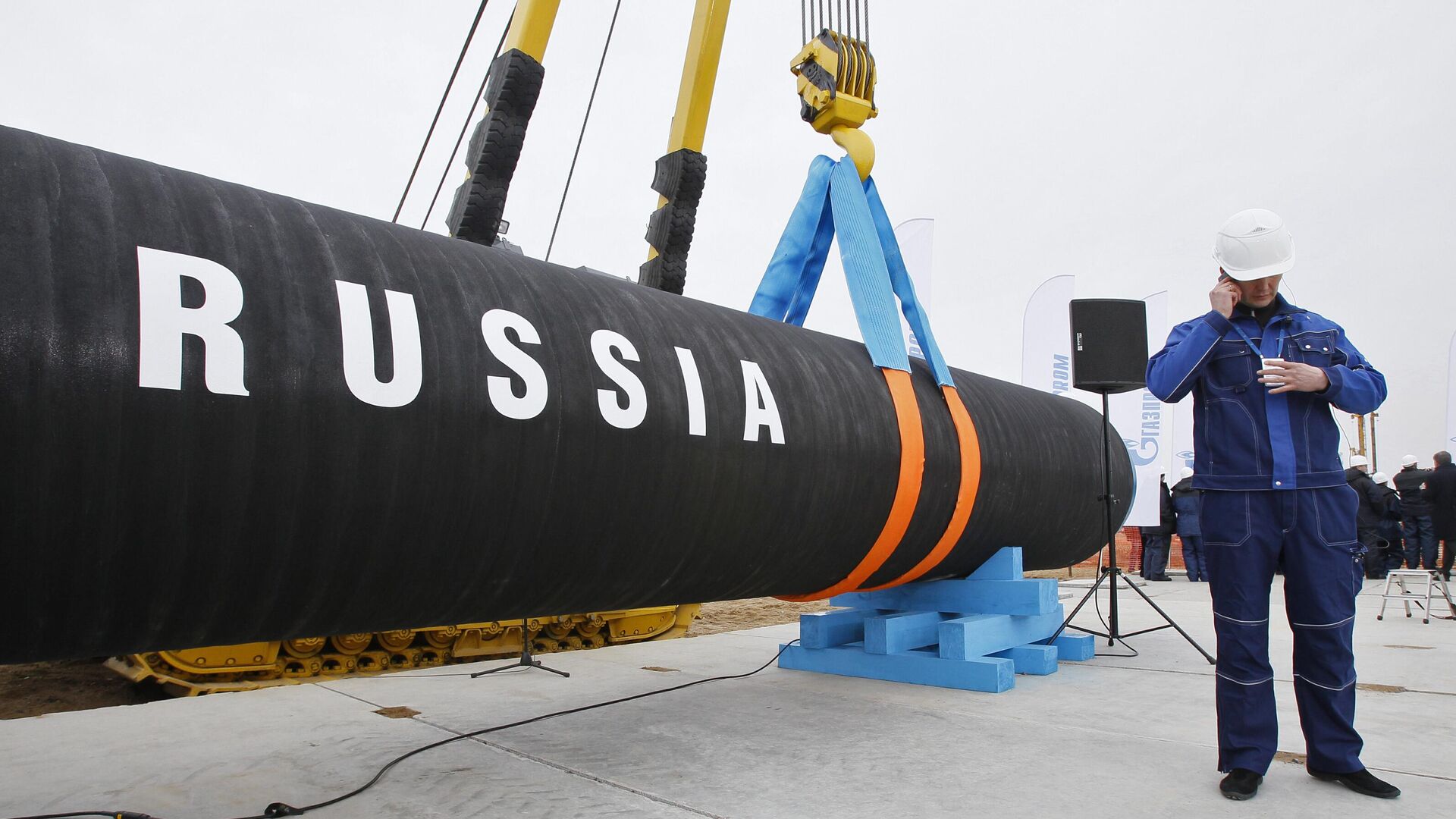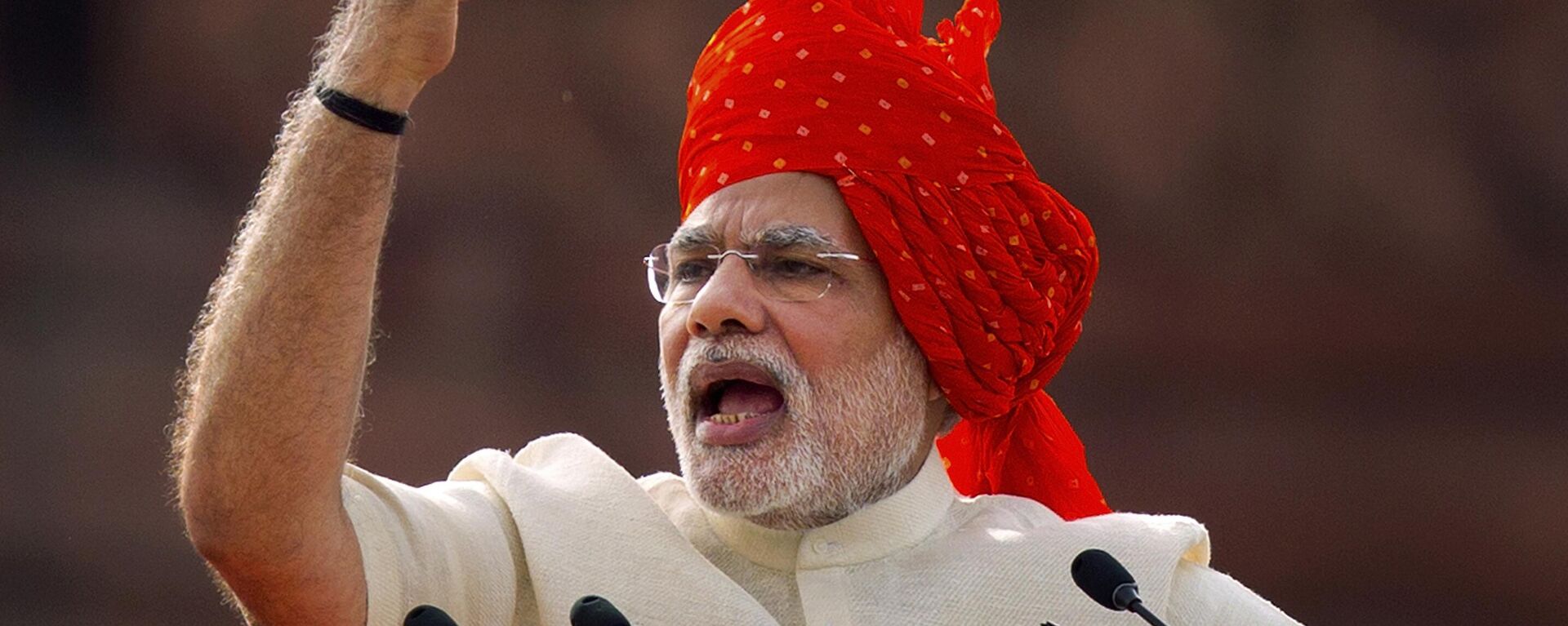Russian Oil Important for India to Manage Domestic Inflation: Experts
19:23 06.08.2025 (Updated: 21:39 06.08.2025)

© AP Photo / Dmitry Lovetsky
Subscribe
India's Ministry of External Affairs (MEA) on Wednesday slammed the US for imposing an additional 25% tariff on Delhi for importing Russian oil. The MEA asserted that India will "take all actions necessary to protect its national interests".
The Reserve Bank of India (RBI) Governor Sanjay Malhotra has downplayed fears of a heightened inflationary pressure if India is forced to cut down its crude purchases from Russia, but added that it was up to the government to take an "appropriate decision on the fiscal side" if there was any such shock.
"It’s not only Russian oil that we are taking, we are taking oil from many other countries. If the mix changes, what is its impact on prices, what is the global commodity prices of crude, it will depend on all that. And the other thing it will depend on is how much of its impact, downwards or upwards, is actually taken by the government in the form of excise duties and other tariffs,” Malhotra said in the post-Monetary Policy Committee (MPC) press conference in New Delhi on Wednesday.
Malhotra did admit that crude purchases remained an important factor for India in determining the inflation, in turn directly linked to the overall GDP growth.
The six-member MPC decided to keep the repo rate unchanged at 5.5%, after announcing rate cuts of 100 basis points starting February till the previous MPC meeting in June. According to the Governor, the decision to keep the repo rate unaltered was due to the current macroeconomic conditions, outlook as well as global uncertainties spurred by potential US tariffs and India-US trade talks. The RBI is also looking for "further transmission of the front-loaded rate cut to the credit markets and the broader economy".
Importantly, the RBI decided to revise downwards the Consumer Price Index (CPI) Inflation for Financial Year (FY) 2025-26 from 3.7% to 3.1%.
Last month, India's Petroleum and Natural Gas Minister (MoPNG) Hardeep Singh Puri had also pinned hopes on India's diversification strategy in terms of crude imports, but warned at the same time that global crude prices could spike to $130 a barrel if Russian oil was removed from the market.
"So today, Russia is one of the main suppliers. They produce about 9 billion barrels of oil a day. That is about 10% of global production and consumption per day... We did an analysis, if you buy from other OPEC sources, prices will go up to a minimum of $130-140 a barrel," Puri stated, warning of consequences if Russian oil were to exit the market.
According to an economic paper published by RBI on the linkage between inflation and crude prices on 23 July, a 10% rise in global crude oil prices could increase inflation by around 20 basis points.
"The spike in energy prices since the Russia-Ukraine conflict in 2022 resulted in a direct as well as second-round price pressures on CPI inflation," it said.
Further, the paper noted that the "benchmarking of domestic pump prices to international prices, fuel prices in the consumer price index-combined (CPI-C) may impact headline inflation, both directly and indirectly, through higher cost of inputs and transportation across regions".
According to data available publicly, Indian refiners saved around $35 billion in costs by importing cheaper crude from Russia between 2022 and this year. Further, estimates reported in Indian media suggest that India will be forced to spend $9–11 billion more in annual import bills if Indian refiners were forced to scale down purchases of Russian crude, which averaged around 1.5 million barrels per day (bpd) in July.
Amid public concerns around the impact on inflation if India is forced to cut down on Russian oil purchases due to US pressure, independent economic experts have told Sputnik India that buying Russian "competitively-priced" crude was essential for India's economic prospects.
"If one does a simple cost-benefit analysis, the advantage for India to keep its competitively-priced oil imports from Russia intact outweighs the disadvantages incurred due to higher tariffs on Indian exports to the US. I believe that even if Indian exports are subjected to additional tariffs from the US, they will continue to remain competitive as compared to other imports from other nations," commented Ashwani Mahajan, the Co-convenor of Swadeshi Jagran Manch (SJM).
He underlined that inflation was directly linked to GDP growth.
"We have managed to keep our inflation under check due to competitively-priced and legally-compliant oil imports from Russia. In fact, higher crude costs will also have an indirect impact on other items in the Consumer Price Inflation (CPI) Index, which will directly impact the Indian consumer. So, definitely, India's geopolitical decision to source crude from Russia has helped in taming inflation, not only in India but across the world," Mahajan explained.
Another analyst working at a multinational consultancy firm, speaking on the condition of anonymity, stated that there was a "clear cut economic logic interlinking retail inflation in India to the price of crude oil imports".
"A country like India, which imports nearly 85% of its crude requirements, is bound to turn to the most competitive option on the market for meeting its requirements. This is the single most important reason why India turned to Russia for fulfilling its crude needs after oil prices spiked to over $117.25 a barrel in March 2025," the analyst explained.
The analyst explained some apprehensions about the feasibility of diversifying the entire crude sourcing away from Russia should Washington's "penalty" on India kick in after 7 August.
"While India has diversified its sources of crude to over 40 countries, it may not be easy to entirely divert away from Russian crude at the same cost, which accounts for 35-40% of India's requirements, without incurring costs," the analyst pointed out.
According to a Reuters report this week, state-backed Indian Oil Corporation (IOC) bought around 7 million barrels of crude from from US, Canada and the Middle-East at an undisclosed price amid US pressure. Russia's Urals crude was trading at $65.17 a barrel, lower than WTI (US) or Brent crude.
"So, in order to manage its retail inflation and keep it in the bandwidth of 4-6%, it becomes imperative for India to continue importing competitively priced oil from whichever source possible. Russia has continued to remain the most viable crude source for India since 2023," the expert concluded.
The Ministry of External Affairs (MEA) has said that India is being unreasonably targeted by the US and EU on the issue of Russian oil imports, which it said are meant to ensure "affordable energy costs" to the Indian consumer.


